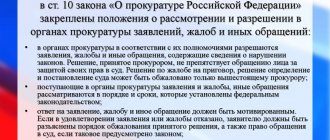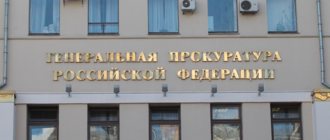The criminal case under Article 159 of the Criminal Code of the Russian Federation was discontinued
What is crooked cannot be made straight, and what is not there cannot be counted. Old Testament. Ecclesiastes 1:15
There is an opinion that in modern Russia, very often, in order to resolve corporate disputes, disputes about property, wealthy people, businessmen, government officials, using corrupt connections in law enforcement agencies, lobby for the initiation of criminal cases against their partners, contractors, competitors, who during the investigation cases very often end up behind bars. Further, not being able to protect their property or commercial interests, these persons are left at least without their assets, and even receive long prison sentences, which also does not contribute to the protection or return of their property. Such criminal cases are usually called custom-made, and the customers of these cases, who financed the corrupt interests of profit-hungry investigators and prosecutors, as a rule, more than recoup their financial costs for initiating and investigating the case, or simply receive moral satisfaction from eliminating a competitor or objectionable subject.
There are even signs of custom-made criminal cases: as a rule, they are associated with commercial activities, they are initiated in many cases under Part 4 of Article 159 of the Criminal Code of the Russian Federation, the initiation of the case is preceded either by lightning speed for this category of cases (several days), or, on the contrary, by a long, verification of a criminal complaint that takes place over six months. Very often, the initiation of such criminal cases was preceded or accompanied by a commercial dispute, which was resolved or is being resolved in civil or arbitration proceedings.
This story is about a criminal case about the fraudulent acquisition of rights to someone else’s property - part of a building worth 280 million rubles, initiated by investigative authorities under Part 4 of Article 159 of the Criminal Code of the Russian Federation.
As practice shows under Part 4 of Article 159 of the Criminal Code of the Russian Federation (fraud on an especially large scale), stopping such a criminal case or achieving an acquittal in it is an almost impossible task.
There are value judgments that the case in question was absolutely custom-made. At least, after three years of investigation, the people who were brought to criminal liability had no doubt about it. Only the final resolution, which stated the termination of the criminal case under Part 4 of Article 159 of the Criminal Code of the Russian Federation due to the lack of corpus delicti in their actions, slightly smoothed out the negative feelings that they experienced for three years and revived the almost destroyed faith in justice and honesty investigators.
I do not have specific facts that allow me to reliably say about the corruption component of this case. At the same time, the data observed and studied by me over the course of three years of investigation allow me to have the opinion that the investigators involved in the investigation of the case took an exclusively biased, tendentious, biased position, and all facts, circumstances and evidence were assessed by them through the prism of compliance with the plot of the case, stated by the victim. Facts and evidence that did not contradict the versions of the victims were unconditionally accepted by the investigation; facts and evidence that did not fit these versions were inexorably and, of course, rejected or ignored. And the tenacity and persistence with which the investigators tried to send this case to court, ignoring not only the position of the accused, but also the demands of the supervising prosecutorial authorities and public organizations, were additional arguments in favor of the opinion that the case was ordered. Whether this is so, you can draw your own conclusion after reading the facts presented in this article.
How the case was initiated under Part 4 of Article 159 of the Criminal Code of the Russian Federation
So, the history of the criminal prosecution of my client dates back to October 2015, when the investigator for especially important cases of the Investigative Committee of the Investigative Committee for the Southern Administrative District of the Main Directorate of the Ministry of Internal Affairs of Russia in Moscow opened criminal case No. 98077 under Part 4 of Article 159 of the Criminal Code of the Russian Federation. At the same time, the roots of the issue go back to 2012, when the investigative authorities of the Internal Affairs Directorate for the North-West Administrative District of the Main Directorate of the Ministry of Internal Affairs of Russia in Moscow accepted a statement from the owner of the offshore company, Gennady Moiseevich Korovin (hereinafter, the data of the persons involved, the names of legal entities have been changed - author's note) and , who asked to bring to justice the director of the controlled LLC “F...”, who had “rewritten” the company to himself. Based on his statement, a criminal case was opened, which was investigated for a long time. During the investigation, as usual, the applicant was interrogated regarding the circumstances that, in his opinion, indicated that a criminal attack had been committed against him or his property. In addition to testifying regarding the theft from him or belonging to him, the applicant actively spoke about the theft from LLC “F...” of part of a building with an area of 1996.7 m² at the address: Moscow, st. 5th Magistralnaya, 12. For almost 3 years, investigators of the Investigative Committee for the North-West Administrative District, in addition to the main case against Buryatova E.V. conducted a parallel investigation into the so-called “theft” of the above-mentioned part of the building. It doesn’t often happen that investigators are so concerned about the violation of the rights of the victim that, within the framework of one case, they conduct two investigations against completely different persons, on different facts, with the only circumstance that unites these investigations - the identity of the witness and also the sole beneficiary of LLC “F...”. Moreover, it is quite obvious that the anxiously tense investigation of the additional episode was to the detriment of the investigation into the original case, as eloquently indicated by the endless extensions of the investigation. Another oddity of the three-year study of the second episode was that it was investigated in violation of the territorial jurisdiction of the Investigative Committee for the North-Western Administrative District. That is why, having collected several volumes of the evidentiary material they needed, the investigators of the Investigative Committee for the North-Western Administrative District singled out numerous interrogations of G.M. Korovin. in a separate proceeding and, together with interrogations of victims, witnesses, examinations, documents and other things, sent this material to the Investigation Department for the Southern Administrative District. Within just a few days, investigators of the Investigative Directorate for the Southern Administrative District opened a criminal case for fraud on an especially large scale (Part 4 of Article 159 of the Criminal Code of the Russian Federation), the plot of which was as follows: unidentified persons prepared a purchase and sale agreement for part of the above building dated February 6, 2008 year, an acceptance certificate, a receipt for receipt of money - 17,000,000 rubles, as well as two decisions of the beneficiary of the Cyprus company Korovin G.M. about vesting themselves with the powers of the general director and approving the transaction for the sale of real estate, after which they handed over the indicated false documents to the Federal Reserve Service, thus deceiving the Federal Reserve Service employees and registered the transfer of ownership of part of the building to a legal entity controlled by them. The story presented, at first glance, did not raise doubts about the circumstances of the theft, since such cases involving the forgery of the entire set of documents submitted to register the transfer of ownership of real estate have long been not uncommon in the practice of law enforcement officers, nor in the characteristics of the swindlers who committed this act, who certainly had audacity, unprincipledness, cynicism, and most importantly a sense of absolute impunity for their actions, since they could be exposed by a simple study of the above documents. Soon, two defendants in the case were charged under Part 4 of Article 159 of the Criminal Code of the Russian Federation with a plot slightly different from the above, and one of them was even detained for some time and placed in a temporary detention facility.
Versions of perfect fraud
Then, in fact, active actions by the defense began to expose the versions of the actual victim regarding how the crime was committed against him. At the same time, I did not make a reservation regarding the plural of the word VERSION, which I used above. For more than three years of investigation of the case, witness G.M. Korovin, who is at the same time the ultimate beneficiary of a legal entity - the owner of part of the building, and also a signatory of all the above documents (purchase agreement, transfer and acceptance certificate, receipt of money, decisions about appointing himself to the position of head of a legal entity - the victim, etc.) outlined at least four versions of the theft of part of the building from him.
First Korovin G.M. claimed that the defendants became the owners of the building “... absolutely unexpectedly” and “... I (Korovin G.M.) did not sell the building to this organization (the legal entity controlled by the defendants - author’s note). A very clear and clear position, which certainly shows that the person has become a victim of daring and dangerous fraudsters-falsifiers, who, using their skills in making forged documents, their knowledge about the subject of fraud and about its owner, produced a whole package of forged documents and “rewrote” them without any payment » take over 2000 m2 of expensive Moscow real estate. Moreover, it is quite obvious that Korovin G.M., being the only signatory on behalf of the seller of all the main documents that served as the basis for the transfer of ownership, like no one else should have been aware, he signed precisely these documents, and not, for example, similar ones , but others, and whether he signed any agreements, acts or receipts at all. At the same time, the fact that Korovin G.M. Having previously worked as an investigator in the prosecutor's office, as a lawyer, and now as a successful businessman, this gave the investigators reason to assume that he should be especially careful and scrupulous when signing such important documents, which, in turn, made it possible to especially trust his testimony.
However, after some time, our applicant changes his testimony and, when presented with the originals of the documents he had previously discredited, informs the investigator that “... these documents were not presented to me to sign, I was given blank sheets of paper to sign,” and a little later again indicates “... no transactions regarding the alienation of my property with them... (i.e. with the accused - author's note) ... I did not commit...".
It is quite natural that in such cases, the necessary examinations are carried out to confirm the testimony of the person who has suffered from fraud. This case was no exception. However, the results of the examination turned out to be completely unexpected for the investigators: in all documents without exception (agreement, deed, receipt and two decisions of the founders), the signature on behalf of the seller was made by G.M. Korovin himself, and it was made on top of the printed text. Thus, both initial versions of the theft of the building collapsed!
But immediately after this, the applicant came up with a new explanation for what happened. It turns out that two defendants in the case, who later became accused, provided him with legal services. In the process of providing services, he signed some documents, which could turn out to be exactly the documents on the basis of which he subsequently lost his property. The incomprehensible gullibility, bordering on negligence, shown by the former investigator and lawyer, when signing the most important documents, he explained this time in a more original way, indicating that “he was actually zombied by the behavior of the above-mentioned citizens... I can assume that V.A. (one of the accused in the case - author's note) has the skills of professional hypnosis...”
Thus, with the light hand of the victim, swindlers-falsifiers turned into swindlers-hypnotists.
To top it off, during a new interrogation, the previously “zombified” and “hypnotized” seller stated that he did not remember at all how he was forced to sign all the documents.
One person once said: “The bigger the lie, the sooner they will believe it!” It is difficult for me to say whether the investigators in the case knew this famous aphorism, its author and its history, but they believed all the testimony presented unconditionally. What is the reason for such puppyish gullibility: the naivety of the investigators of the district police units or the beginnings hidden in the personality of the successful and wealthy businessman G.M. Korovin, who knew how to build bridges and find a common language with everyone without exception, and his experience as an investigator and lawyer only contributed to his this particular case.
What does it take to stop a criminal case of fraud?
Before the defense achieved the dismissal of the criminal case of fraud on an especially large scale, for about two years we demanded the interrogation of numerous (!) witnesses who were personally present at the transfer of the stolen building. At the same time, G.M. Korovin himself introduced the new owner to the service staff and tenants, without looking like a zombie or a victim of villainous hypnotists. For the same amount of time, the investigation refused to question witnesses who were personally present during the transfer of Korovin to G.M. money under the purchase and sale agreement, which he so passionately disavowed.
The defense, using data on G.M. Korovin’s air travel and data on cash flows in his bank accounts, refuted his testimony that on the date of signing the disputed documents in 2008, he was 2,000 km away for a long period of time. from Moscow.
The investigation was presented with numerous judicial acts of arbitration courts of almost all levels, by which G.M. Korovin, or rather the companies controlled by him, were denied recognition of the controversial real estate purchase and sale agreement as invalid. Moreover, in one of the decisions, the court directly indicated that the claim in the arbitration court was due to the desire of the previous owner to return part of the building and begin to derive income from using it in commercial activities without returning the money paid for the property to the current owner. The court regarded such actions as an abuse of law. It is noteworthy that the documents, which with the light hand of the seller were imputed to the accused as “fake”, were presented to the court by the same seller, but in a different arbitration process, as a substantiation of their legal claims! This circumstance was directly referred to by the arbitration court of cassation.
Numerous examinations were carried out in the case. Some of them have already been touched upon. In addition to handwriting examinations of the seller’s signature, several examinations were carried out to determine how long ago the text of the disputed documents was produced. The results were disappointing for the former owner of the building and the investigation: two of them stated the impossibility of establishing how long ago the document text was produced (expert centers of the Ministry of Justice and the Ministry of Defense), and one established that the date of the documents corresponded to the period of execution of the texts.
Then the investigation ordered another examination to the expert center of the FSB of Russia, which concluded that the purchase and sale agreement and other documents related to the transaction, dated February 2008, were made on paper produced in 2011-2012. Despite the fact that the conclusions of this examination did not directly refute the content and essence of the purchase and sale agreement, its reality, and most importantly, compensation, the conclusions of this examination became one of the main evidence of the prosecution, which it relied on for almost three years of investigation of the case. It was difficult to refute these conclusions for two reasons: in Russia there is not yet at least one expert institution that has carried out examinations of the age of production of the paper on which this or that document was made. Secondly, the methodology for conducting the examination, omitting all the technical subtleties, consisted of comparing the paper submitted for examination, on which the document was made, with paper samples stored in the file cabinet of the expert institution. At the same time, the method of creating the said card index of paper samples remained a tightly sealed secret and was not established during the investigation. The packs of paper indicated by the manufacturer's expert did not indicate the year of its production, as the defense independently verified. The defense received information from this paper manufacturer that paper samples by batch, year, etc. are not provided to expert institutions, both the FSB of Russia and other expert institutions. Thus, one could only guess where the experts took the samples for the comparative study, whether they could guarantee that the sample that was in the file cabinet in the section, for example, “year 2011” was actually made in 2011, and not bought in a store in 2011, whereas it was manufactured in 2008. It is obvious that without a “transparent” method of creating a file of samples for comparative research, the conclusions of this examination could not satisfy either the defense or any person advocating an objective and impartial investigation. However, as has already happened in this case more than once, the investigation was not interested in such moments, and it did not establish the above-mentioned circumstances.
Instead, the investigation focused on confirming the building's seller's latest version that he had no recollection of the sale transaction. The seller now associated the state of unconsciousness not with hypnosis and zombification, but with the presence of a long-term psychotraumatic situation that caused a state of depression, for which he took appropriate medications as prescribed by a doctor, among other things, “washing them down” with alcohol. Study of medical records of Korovin G.M. (the examination was carried out almost two years after the “psychotraumatic situation” under study) gave psychiatrists grounds to draw a conclusion that I first encountered in my practice. Not only was there no specific disease of the “suffering” person in the examination, but there was only a reference to a complex “personality disorder”, but also the usual formulations for such examinations “could not or could not realize the nature of his actions and direct them” were replaced with the wording “... changes... in the psyche... deprived Korovin G.M. ability to understand and evaluate facts that are important for predicting the consequences of his actions.” To top it off, the conclusions about the indicated inabilities of the seller, by a lucky chance for him, concerned precisely the three months of April-June 2012, when documents on the transaction in question were submitted to the Rosreestr authorities.
The conclusions of this examination became another pillar of the accusation, with which the investigation proved the seller’s fourth version regarding the reasons for the sale of the building.
The defense did a tremendous amount of work to refute the already contradictory conclusions of this examination. Moreover, I omit in advance the testimony of numerous witnesses who personally observed the seller and his condition during the registration of the contract and the transfer of property. Needless to say, at first the investigation refused to interrogate these witnesses, and after interrogating them, they refused to trust them. The defense provided a number of reviews from leading psychiatric centers in Russia, pointing out numerous shortcomings of the study and non-compliance with its methods. Data were also presented that reliably allowed us to establish that Korovin G.M. on the dates indicated in the medical documents, he was either not in Moscow at all, or, according to the details of his phone number, he was far from the medical institution where he allegedly sought medical help. The medical institution’s registry data did not contain any information about G.M. Korovin’s appeal. to medical institutions. The same cases when the patient could not be seen by doctors, which was irrefutably proven by the defense, were played up by the investigation by interrogating medical workers who stated that the entries in the medical records about the provision of G.M. to Korovin. medical care could be done by consulting the latter remotely by phone!
The investigation was difficult to surprise with anything!
In addition to the above, data was presented that Korovin G.M. during the period of his “personality disorder”, he not only signed all the controversial documents on the purchase and sale transaction, as the investigation claimed, but also during the same period, “lost the ability to understand and evaluate the facts” and “predict his actions”:
- independently contacted Rossreestr and supplemented the package of documents required to register the transaction;
- re-registered several land plots he purchased in the Moscow region;
- bought and picked up a new Porsche Cayenne Diesel car;
- actively participated as a plaintiff in the consideration of a civil case with a claim value of about 25 million rubles in one of the Moscow courts;
- moved around Moscow by car and flew abroad.
And this is just what the defense was able to prove!
The investigation was not surprised by the conclusions of the handwriting examination, according to which in all the signatures made in the disputed documents by G.M. Korovin. There were no signs indicating the influence of any unusual conditions on the writing process, including those caused by the peculiarities of the psychophysiological state of the performer. In other words, the expert, at a minimum, did not confirm the words of the signer, that at the time of signing the documents he was drinking sedatives, alcohol, was in a state of “personality disorder,” etc. This did not make any impression on the investigation, and every new investigator continued, with a tenacity worthy of greater use, to believe the testimony of G.M. Korovin that he was in a sick state, did not know what he was doing, and the scammers took advantage of this to re-register the property in their name .
Apparently, as a kind of revenge on the defense for excessive activity, the investigation, having a cadastral value of the building of about 65 million rubles, carried out several examinations to establish the market value of the building, which at first became worth 116 million rubles, and after a second examination - 280 million. rubles!
The apogee of the “objective” investigation was the seizure of the building and its transfer “for safekeeping” to the victim. Thus, what was not achieved in the arbitration proceedings, what was mentioned in one of the decisions of the arbitration court - “the desire of the previous owner to return part of the building ... and begin to derive income from using it in commercial activities without returning the money paid for the property to the current owner ", was accomplished with the help of the investigative authorities!
Termination of criminal case
It is impossible to describe in detail and thoroughly all the work that was done in this criminal case in order to defend the innocence and good name of the accused in this case. To understand the situation and the strength of opposition from the investigative authorities, I will only say that dozens of complaints were filed in the case to the prosecutor’s office (district prosecutor’s office, Moscow and the Prosecutor General’s Office of the Russian Federation) and the investigation (Investigation Department of the Ministry of Internal Affairs of the Russian Federation and the State Investigative Directorate for Moscow). More than three investigators were replaced in the case, twice the accused were announced that the investigative actions had been completed and that they had been familiarized with the case materials in accordance with Article 217 of the Code of Criminal Procedure of the Russian Federation. In the case, four (!) demands were made from the Moscow prosecutor for illegal criminal prosecution of the accused, which were not satisfied by the investigators! An appeal was submitted to the Commissioner under the President of the Russian Federation for the protection of the rights of entrepreneurs, as a result of which the criminal case was studied at a meeting (video here) of the Center for Public Procedures “Business against Corruption”, and the appeal was taken into consideration as justified.
However, only 37 months from the moment of initiation, the criminal case under Part 4 of Article 159 of the Criminal Procedure Code of the Russian Federation was terminated due to the absence of a criminal offense in the actions of the accused on the basis provided for in Clause 2 of Part 1 of Article 24 of the Criminal Procedure Code of the Russian Federation, measure the suppression against the accused was canceled, and the rear ones were returned to the rightful owner.
Resolution to terminate the criminal case under Part 4 of Article 159 of the Criminal Code of the Russian Federation
- Share on facebook
Added04.12.2018 | Litigation practice, Criminal cases
The acquittal of those accused of fraud remained on appeal, despite their confession.
On June 15, the judicial panel for criminal cases of the Yaroslavl Regional Court upheld the acquittal pronounced by the trial court against all defendants in the government procurement case.
According to the Investigative Department of the Federal Security Service of Russia for the Yaroslavl Region, entrepreneurs M., Z. and an employee of one of the state educational institutions P. in 2013 and January 2014, acting as part of a group of persons by prior conspiracy, stole 23 million rubles. at the Department of Education of the Yaroslavl Region (hereinafter referred to as the Department). These persons were charged with fraud on an especially large scale, committed by a group of persons by prior conspiracy.
The investigation alleged that the accused Z. and M., acting on behalf of K.N LLC, which they headed, deliberately inflated the final price for digital laboratories produced by Data Harvest (UK). Accused P. allegedly “deliberately hid” the commercial proposal of LLC “V.” from his management and did not submit to the Department. with lower retail prices for equipment than those offered by defendants Z. and M.
The investigation considered that if such information had not been hidden, the state would have saved 23 million rubles on the purchase of equipment, that is, the accused stole budget funds through fraud. Allegedly, Z. and M., represented by K.N. LLC, which was not a participant in the bidding held in 2013 by the Department for the purchase of digital laboratories and other equipment for the needs of educational institutions, misled the participant in such bidding, ZAO Firm K. , who was ultimately recognized as the winner of these auctions, by reporting false information about the prices of equipment.
According to the investigation, Z. and M., acting on behalf of K.N LLC, spent only 10.5 million rubles. for the purchase of digital laboratories, but sold them under fictitious transactions of ZAO Firma K. for 29.5 million rubles. In turn, the CJSC made an independent markup on equipment in the amount of 65%–70% of its costs and entered into government contracts, receiving about 48.5 million rubles for them. budget funds. According to the defense, the investigation, as part of material damage, charged the accused with both the amount of the markup made by K.N LLC when selling digital laboratories to ZAO Firma K., and the amount of the markup made exclusively by the latter when selling digital laboratories under government contracts. The defendants were brought a civil suit in the amount of 22.8 million rubles.
The investigation also alleged that P. deliberately, based on his own selfish motives, the selfish interests of Z. and M., selected an expensive model of a mobile data collection device with a set of sensors, which was closest in terms of the technical parameters he selected to a mobile data collection device with a set of sensors manufactured .
The investigation also relied on correspondence and telephone conversations, from which it allegedly followed that P. specially developed technical specifications for favorable conditions, deliberately excluding the victory of bidders with other digital equipment.
In the end, the state prosecution in court was based on the above version of the investigation, which believed that all the circumstances for finding the above-mentioned persons guilty of the crime were fully confirmed.
Lawyers of the Kostroma Region Administration (Eduard Lebedev and Pavel Pashutin, defending M., Alexey Gusakov and Alexey Klushin, defending Z.) took over the defense of the accused only at the end of the preliminary investigation. By this time, the investigation had confessions from M. and Z., obtained, according to them, through pressure. The defense of the accused P. during the entire investigation of the case and in court was carried out by the lawyer of the Administration of the Yaroslavl Region, Igor Zaitsev.
The Yaroslavl district court considered the extensive criminal case for more than a year.





